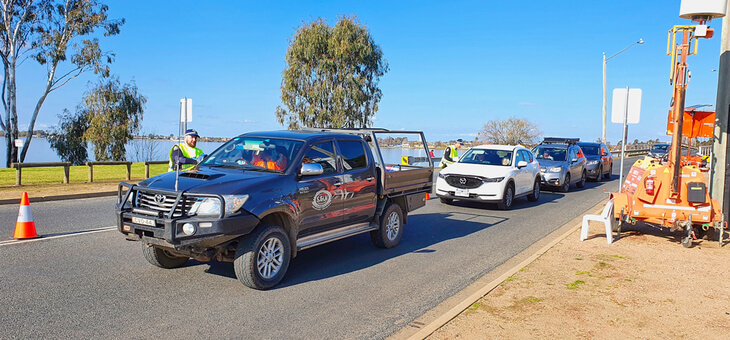Olivia is planning to travel interstate for Christmas and wants to know what is expected of her when crossing borders.
Q. Olivia
My husband and I regularly travel from Melbourne to the Sunshine Coast to visit relatives for Christmas.
We usually drive up and make stops along the way (we didn’t always break the journey up so much, but those days are long behind us now). What test requirements must we make when we cross borders and what other responsibilities do we need to be aware of?
Read: Travel tool helps you see what countries are safest
A. There are different rules in place for different jurisdictions around Australia and they can be confusing and change at a moment’s notice.
All travel will require you to be fully vaccinated, but I will take that as a given.
I will run through the rules as they currently stand for each jurisdiction, but it will also pay to check the links provided prior to travel, to make sure you have the most up-to-date information.
Let’s start with the first leg of your journey across the border into NSW. If you have been in a ‘place of high concern – casual contact place’, you won’t be able to enter NSW for 14 days, or seven days if you’re fully vaccinated and if you have been identified as being in a place of high concern you can’t enter NSW without producing a negative test result.
Read: When is Australia’s cruise ban likely to be lifted?
Queensland is on target to meet its 80 per cent double-dose milestone before Christmas and that should allow you to travel to the Sunshine State around Christmas.
However, as you will be leaving from an interstate hotspot you will have to return a negative PCR test result 72 hours prior to travelling into the state.
The authorities will continue to accept an official test message as evidence of a negative test result.
Read: Which Australian state has the highest interest in travel?
The PCR test will no longer be a requirement when Queensland hits its 90 per cent vaccinated target, so you should keep a close watch on their progress as you get closer to your travel date.
Here are the rules for other states around Australia.
Tasmania
A negative COVID PCR test result within the 72 hours before departing for Tasmania is also needed by travellers who have been in ‘high risk areas’ in the past 14 days.
If you do not have evidence of a negative COVID test, you will be forced to isolate in the state until your return a negative COVID result.
South Australia
I have friends travelling to South Australia for Christmas, and they are in an interesting situation because of the rules.
South Australia is still judging risk based on your local government area (LGA), with different rules applying depending on your LGA’s perceived level of risk.
This has meant that some of my friends are subject to different treatment to the others they are travelling with based on their LGAs in Melbourne.
If you are travelling from a location with no evidence of COVID-19 transmission, the only entry requirement is that you are double vaccinated.
If you are travelling from a location with a low-, moderate-, or high-risk designation, then you need to test negative to COVID 72 hours prior to arriving in the state. Those from areas designated moderate or high-risk also face an additional requirement of being tested within 24 hours of arriving in the state.
Western Australia
The WA border is still closed to travellers from COVID destinations and will remain that way until its population reaches the 90 per cent double dose rate for those aged 12 years and over.
Once it reaches that milestone, travellers will still need to return a negative test in the 72 hours prior to their departure and may also have to undertake a test on arrival in the state.
Victoria
Victoria has met its 90 per cent double dose target so the border is open to the rest of Australia without a test result.
Travellers can also enter the state regardless of their vaccination status.
Are you planning to travel interstate this Christmas? Have you been checking the requirements for your destination? Why not share your thoughts in the comments section below?
If you enjoy our content, don’t keep it to yourself. Share our free eNews with your friends and encourage them to sign up.

